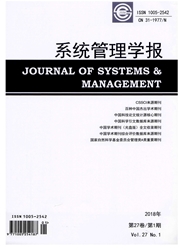

 中文摘要:
中文摘要:
运用我国58家(13家上市和45家未上市)商业银行2001年~2009年的数据探讨商业银行实际利差与效率的关系。采用了随机前沿法测量商业银行的成本效率和利润效率,发现我国商业银行成本控制能力明显好于利润创造能力。建立了回归模型,从全样本和分样本角度分别研究商业银行实际利差与效率的关系。研究发现:实际利差与成本效率的关系显著正相关,而与利润效率存在显著负相关关系;银行规模、盈利能力、稳定性、创新能力、资源配置能力以及市场结构均显著影响成本效率,而盈利能力、市场风险、创新能力以及资源配置能力均显著影响利润效率。最后,研究结论通过了3方面的稳健性检验。
 英文摘要:
英文摘要:
We study the relationship between the interest spread and efficiency based on China's 58(13 listed and 45 unlisted)commercial banks over the period from 2001 to 2009. First, we measure the cost efficiency and profit efficiency by using stochastic frontier method, and find that their cost control ability is significantly better than the profit creation ability. Then we build a regression model and analyze the relationship between the interest spread and efficiency from full samples and sub-samples. The study shows that the interest spread has a significantly positive impact on the cost efficiency and a significantly negative impact on the profit efficiency; the size, profitability, stability, innovation ability, resources deployment ability, and market structure significantly influence the cost efficiency, whereas profitability, market risk, innovation ability, and resources deployment ability significantly influence the profit efficiency. Our findings pass three robust tests.
 同期刊论文项目
同期刊论文项目
 同项目期刊论文
同项目期刊论文
 期刊信息
期刊信息
